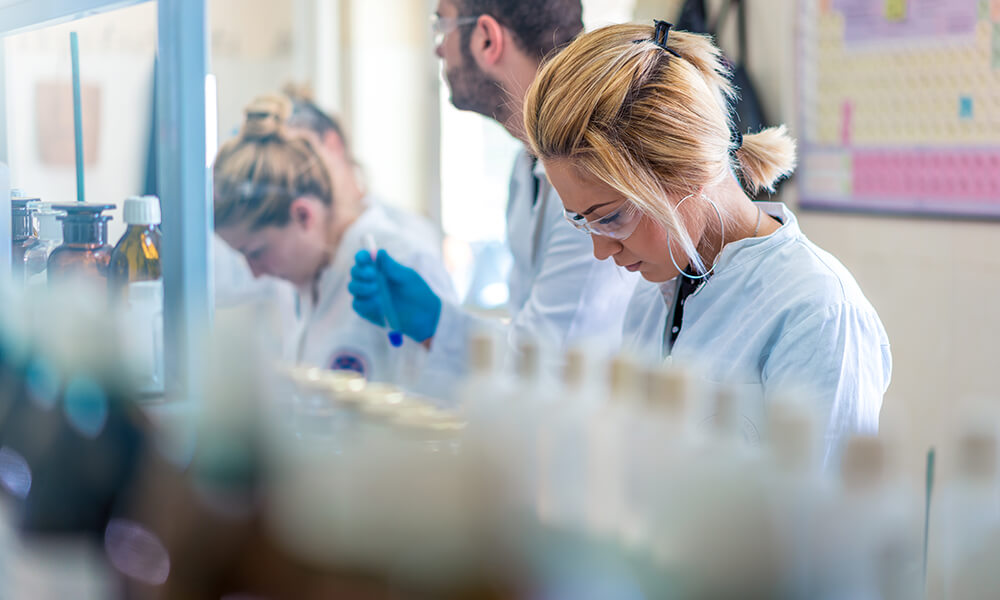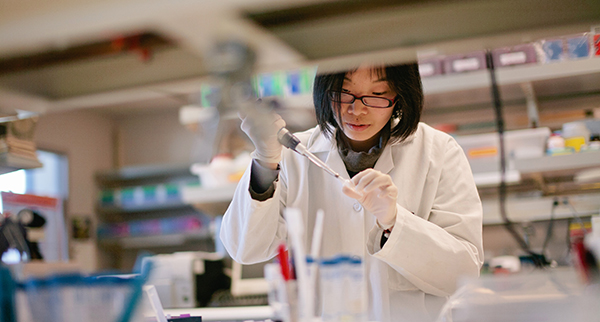How can executive search firms help address the skills gap in life sciences?

In both the UK and US, the life sciences sector is a booming industry, one that employs roughly 241,000 people in the UK alone and, with a recent announcement, will be receiving 2.4% of the UK’s GDP by 2027, hoping to propel Britain into the position of a “scientific and tech superpower” on the global stage.
The past two years have seen the life science sector thrust into the limelight, primarily for the innovations and breakthroughs that led to the creation of the recent COVID-19 vaccines.
However, the sharp uptick in recent developments, the changes in how processes are done, and the increasing demand for more workers in the sector mean that experienced scientists are in short supply, a supply that’s only going to become more scarce over time if nothing is done.
AI & Life Sciences
As technology progresses, AI is playing an increasingly integral role in the life sciences and across multiple disciplines, including the life sciences. As a tool, AI is proving itself useful for researchers of all kinds, allowing for varied groups to work together on numerous projects. The number of journal publications that featured AI technology grew over 34% between 2019 and 2020, a significant leap that shows the increase in scientific publications.
Alongside bringing together various members of the scientific community, the increase in AI means that most scientists will need the help of a programmer or someone with programming knowledge. Something that’s not always done easily or quickly, and with a shortage of AI talent, developers with specific know-how are in high demand.
The nuances between traditional scientists and computer scientists can also lead to miscommunications, whether that’s thoughts on how best to present work or willingness to share knowledge and skills; the discrepancies between the two can sometimes lead to a conflict between the two parties. Some, more traditional, scientists can look to AI orientated computer scientists and engineers as a means to an end, providing the necessary knowledge to programme models and little else.
For true collaboration, those in life sciences need to develop a combination of core background knowledge on AI and practical experience to help manage expectations and establish working relationships with AI specialists. As technology encourages the life sciences to change how they approach problems and search for solutions, the lack of awareness surrounding said technologies becomes apparent, further stressing the skill-set gap.
An ageing industry
While a Deloitte survey from 2018 found that only 1 in 5 US biopharm firms are digitally maturing, it’s not just a lack of technological understanding creating a gap in skills within life sciences. The increasing age of the science sector has led to a literal gap where there aren’t enough young people entering the industry to replace those who have retired.
Generally speaking, it would appear as though the UK is falling behind Europe and the rest of the world when it comes to the number of students picking up the STEM subjects necessary to enter life sciences. While technically the number of students studying STEM subjects has increased by 16% over the last decade, undergraduates in the EU studying STEM rose by 52%, and across the world, the number rose by 63%.
This increase leads to a skill gap and increases the odds of the UK losing roles in the biotech and pharmaceutical industries overseas.
Diversifying the sector
A contributing factor to the rate of students picking up STEM subjects could well be the lack of diversity within the sector. It’s well known that girls are much less likely to choose to study STEM subjects than boys, something that ministers and sector leaders are keen to address.
Diverse teams are a core element to recruiting and retaining top talent, something we at Imperium understand only too well. Research shows that more diverse and inclusive companies tend to make more money, make more significant innovations and make more informed decisions.
Many companies are finding that senior female representation is crucial to their businesses success. Having women in high positions of power helps encourage diversity throughout the rest of the industry, shaping the company’s culture and providing strong role models. Similarly, attracting female employees at the lower levels is just as essential for creating diverse teams and hopefully feeding into more senior positions further down the line. Pharmaceutical company Pfizer has begun using software to scan job adverts for gender-specific language to avoid deterring certain groups from applying.
Recruiting for the future
When it comes to filling the skills gap in the life sciences industry, it’s integral that there are incentives and the proper infrastructure in place to retain employees, but simply getting the suitable candidates through the front door is something that executive search firms can assist with.
As specialists in finding the right people with the appropriate skills and corresponding experience, we at Imperium know the challenges in finding those who won’t just fulfil the job role but go above and beyond. However, as specialist recruiters within the life sciences industry, we’re in contact with an extensive number of diverse and varied candidates and contacts, each with proven track records.








